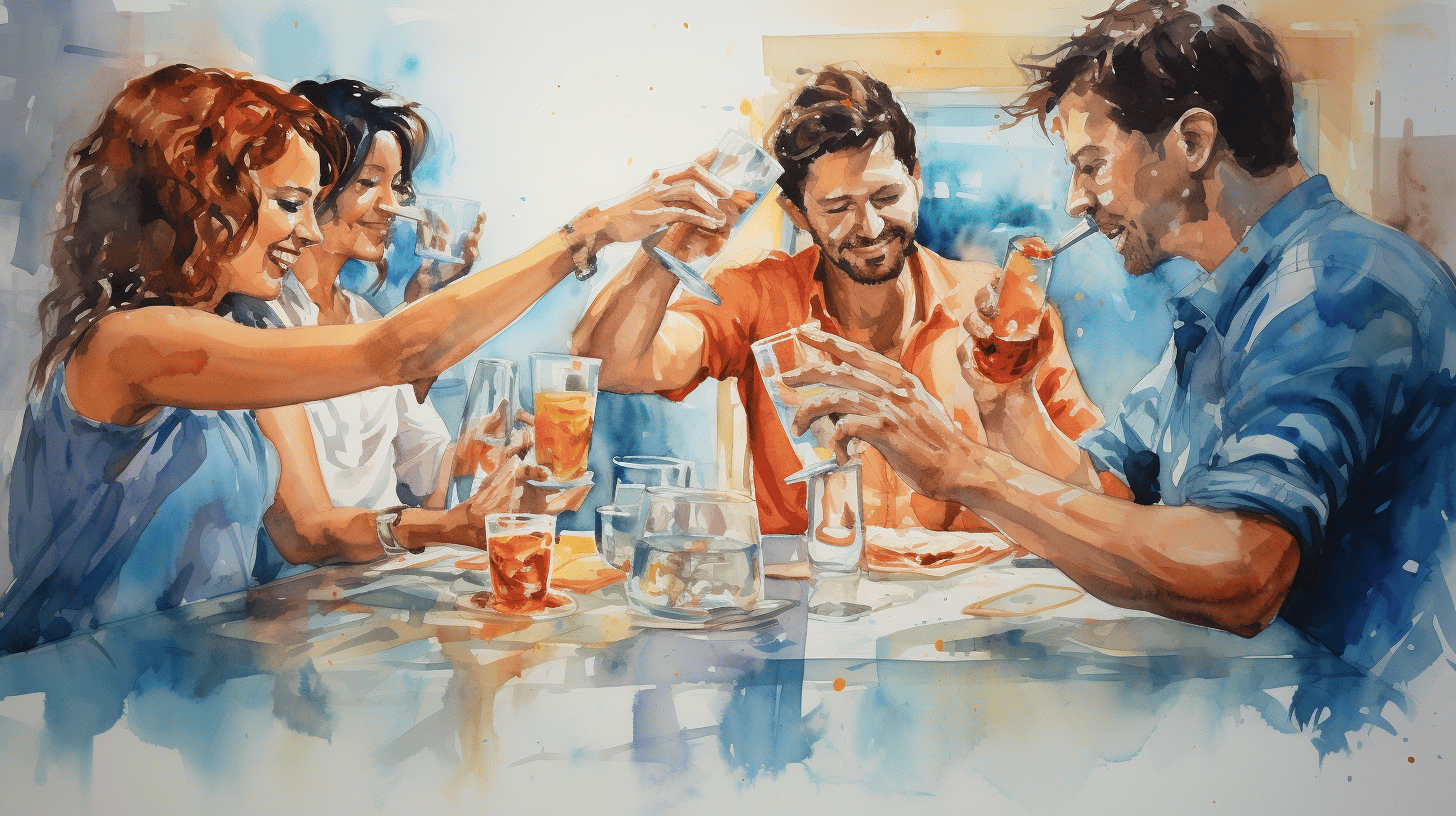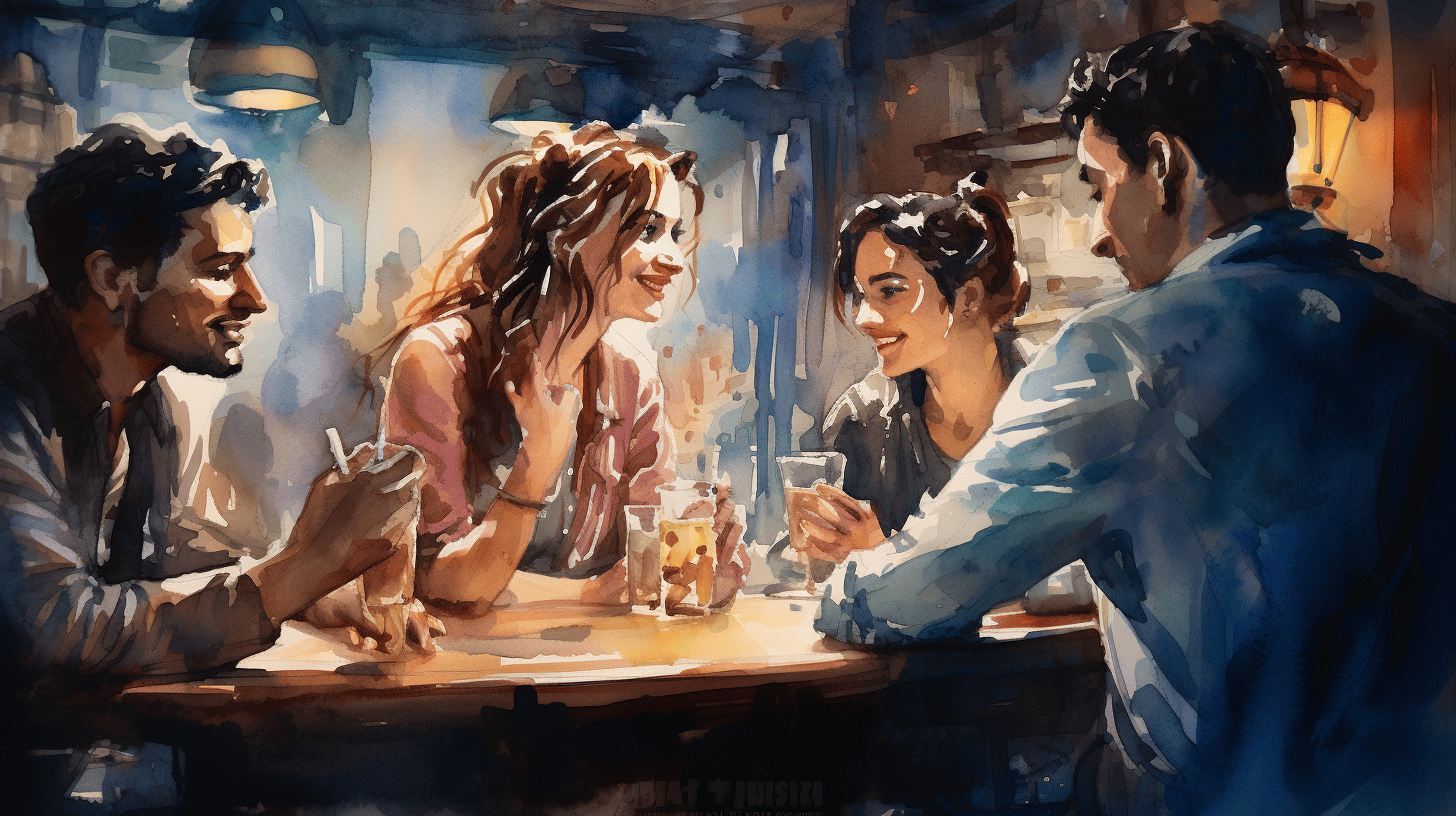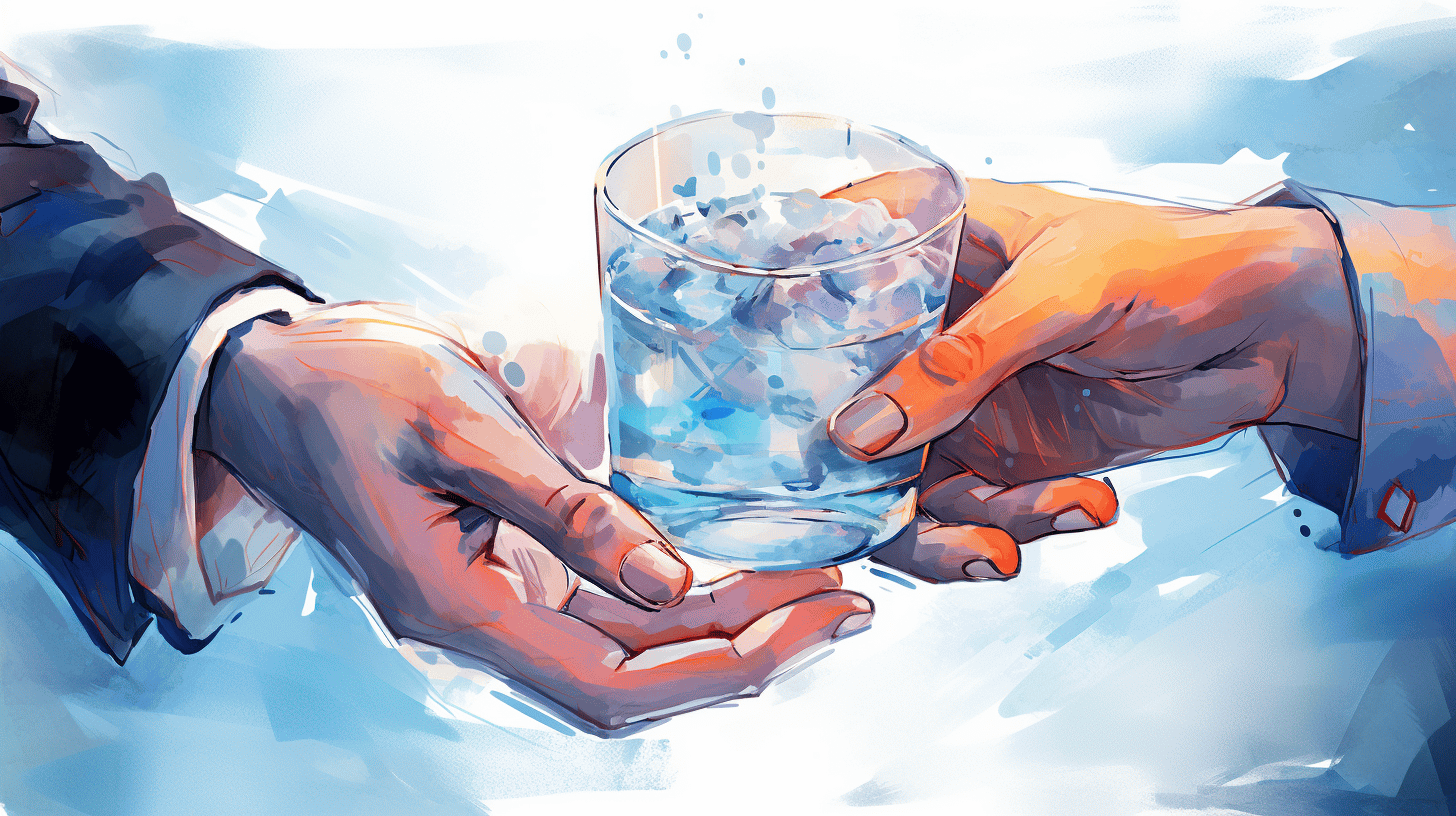Let's begin a conversation on an uncompromisingly critical topic - drink spiking. Have you ever found yourself in a situation where you're enjoying a party, grabbing a glass of your favorite cocktail, and suddenly feeling dizzy and disoriented? It happens more often than we'd like to admit. Drink spiking is a widespread and insidious crime, robbing individuals of control over their actions and making them vulnerable to numerous crimes, such as robbery or assault. This practice brings intimidating dangers to our social environments, tarnishing our sense of safety and privacy.
It's time we shine a light on this issue, equip ourselves with the right knowledge, and reclaim our security, both for ourselves and those around us. This comprehensive guide discusses the prevalence of drink spiking, the substances commonly used, tips to protect ourselves, and the importance of education and awareness in preventing such incidents. Stay educated. Stay safe. Let's dive into it together.
Understanding the Prevalence of Drink Spiking
Drink spiking – it's a terrifyingly common phenomenon that no one should have to experience. It can occur at any social gathering: a cosy dinner party or a buzzing nightclub or anything in between, and it is deeply distressing and illegal. In this aspect of our societal journey, the vital cultural adage to 'never leave your drink unattended' has never been more important. We're here to delve into this ominous trend, exploring the statistics, the gender differences, and the evolution of this criminal act over time.
Drink Spiking Statistics
As we peel back the layers of drink spiking's prevalence, some harrowing numbers emerge. For instance, according to the National Police Chiefs' Council (NPCC), there were over 6,500 drink spiking incidents reported in just a 12-month period in England and Wales back in 2022/23. Further unsettling is the fact that 1 in 10 young adults are estimated to have fallen victim to drink spiking. The stats highlight the alarming reality, signalling the urgent need for awareness and precautions against such acts.
Gender Differences in Drink Spiking
Often associated with female victims, the number of Men falling prey to this felonious act might surprise you. As per recent data, 64% of men have had an alcoholic drink spiked, and a chilling 28% have had their food spiked, compared to 10% of women. This doesn't by any means understate the horrific reports of women being spiked in UK with an astronomical number of incidents coming to light. It does, however, underscore that drink spiking isn't an issue confined to any single gender—it affects us all.
Trends in Drink Spiking Over Time
Drink spiking is not a new phenomenon, but its disturbing rise in recent years has been particularly unsettling. The New South Wales (NSW) Bureau of Crime Statistics and Research uncovered a spike in drink spiking incidents, notching up 219 in 2022 compared to 154 in 2021. Moreover, we've also seen drink spiking incidents in London quadruple in the last five years.
This increasing trend, coupled with a rather low prosecution rate of less than 1 in 400 cases in 2022, heightens the need for us to be ever-vigilant and proactive in protecting ourselves and those around us.
These alarming trends and figures underline the urgency to combat drink spiking collectively. Remember that awareness is our first line of defence—educate yourself, stay vigilant, and protect those around you. Together, we can make our social environments safe and secure.
Common Substances Used In Drink Spiking
Imagine a night out with friends - good music, great conversations, and top-notch drinks. Everything seems perfect until you wake up the next morning with zero memory of what transpired. Unpleasant, isn't it? Welcome to the world of drink spiking where seemingly innocent drinks can quickly turn dangerous. We explore the most frequently used substances in drink spiking and how they can secretly sabotage your evenings:
- Alcohol: Yes, you heard it right. Alcohol - the very heart of our social gatherings, is the most commonly used substance in drink spiking. Shocking, isn't it? While most of us keep an eye out for suspicious pills or powders in our glasses, we tend not to acknowledge the idea that simply over-imbibing or consuming an unexpectedly strong drink can also be an instance of drink spiking.
- GHB Analogues: The second most common substance is GHB or Gamma Hydroxybutyrate and its analogues. These substances induce a euphoric state and are notorious for their use in drink spiking cases. This colorless and odourless substance can easily be slipped into your drink without you suspecting a thing.
- Benzodiazepines: These substances are typically prescribed for anxiety and other medical conditions, but when used without medical supervision, they can incapacitate and cause short-term memory loss. Benzodiazepines are increasingly being utilized for drink spiking, making them a substance of significant concern.
Next time you're enjoying a cocktail or two, remember to keep your drink with you at all times and never accept drinks from strangers. You might think 'This could never happen to me,' but the harsh reality is that it happens more often than you may think. After all, protecting oneself is always better than the alternative.
Knowledge of these substances isn't designed to scare you but to empower you. Being aware of the common substances used in drink spiking can help you stay vigilant and ensure a safer nightlife for everyone. Remember, the joy of an evening out is in engaging connections, vibrant music, and tantalizing cocktails - not in losing control. Let's stay informed and inspire change, one drink at a time.
"Drink spiking is most commonly done with alcohol, followed by GHB analogues and benzodiazepines" - let's not forget this valuable piece of information to keep ourselves and our loved ones safe.
How to Protect Yourself from Drink Spiking
Understanding the risks and knowing how to protect yourself from drink spiking is crucial. This is a scary crime that can happen anywhere, but sending out an urgent SOS message isn’t the only solution. With a few practical measures and preventative strategies, we can fortify our defences. So let's delve further into what we can do to prevent drink spiking and how we can cope if it happens.
Safety Tips
We've all been there. The atmosphere at the bar or the club is buzzing. Music is blaring, people are laughing, and a lovely stranger offers you a drink. At this point, drink safety might be the last thing on your mind, but it should be the first.
Here are some essential tips to consider:
- Always watch your drink being poured or opened.
- Refrain from accepting drinks from strangers. If you do, accompany them to the bar and watch your drink being prepared.
- Never leave your drink unattended, even for a moment.
These seemingly small steps are the frontline of our defence against drink spiking. More of such Preventing drink spiking tips may sound basic but are invaluable.
Prevention Methods
While safety tips are great, let's add another layer of defence to our game plan: prevention methods. These tools and techniques are designed to reduce the risk even further:
- Consider using drink covers. These fitted tops fit snugly over glasses and cans, making it harder for someone to tamper with your drink.
- Be aware of your surroundings. If you notice anything odd like someone watching you or trying to get close to your drink, trust your instincts.
- Avoid sharing drinks. This might seem like a fun idea, but it exposes both you and the other person to potential harm.
Being diligent and proactive in implementing these methods provides a solid line of defence against drink spiking, allowing us to enjoy our social outings without fear.
What to Do If Your Drink Has Been Spiked
Despite our best efforts, it's always possible for things to go wrong. However, that's no reason to panic. If you do suspect your drink has been spiked, remember to:
- Seek help. Alert a staff member and a trusted friend about your suspicion.
- Stay with trusted individuals. Don't wander off alone or leave with someone you don't know.
- Get medical attention. Drink spiking can have severe repercussions; thus, it is crucial to seek medical help.
In conclusion, protecting yourself from drink spiking might seem like a daunting task, but with the right knowledge, it becomes a lot more manageable. Using safe drinking practices, leveraging prevention strategies, and knowing what to do if your drink is spiked are all vital parts of the fight against this horrific crime. Crime can't be prevented entirely, but we can certainly learn to protect ourselves effectively.
The Importance of Education and Awareness in Preventing Drink Spiking
Defining an evening out with friends can be different for everyone. For some, it might be a relaxing dinner while for others, it might involve hitting dance floors past midnight. As diverse as we are in our preferences, it's something singularly important we should all unite on - promoting personal safety, particularly when it comes to preventing drink spiking. Drink spiking, a dangerous action that involves adding drugs or alcohol to someone's drink without their knowledge, has become an alarming threat to our society's safety. As such, an in-depth understanding and widespread awareness are instrumental in curbing this issue.
There's no denying the severity of the subject; yet, it's surprising how often it gets overlooked. Possibly because it's hidden beneath layers of other safety concerns. But that's exactly why it's crucial to bring it to light and discuss openly the steps we can take to prevent it.
Before we dive deep into the countermeasures, it's essential to fully grasp the gravity of drink spiking:
- It represents a significant violation of a person's consent and bodily autonomy.
- It can lead to harmful, sometimes life-threatening, physical symptoms such as unconsciousness or respiratory distress.
- The psychological impact - including feelings of vulnerability, mistrust, and violation - can understandably be profound.
- It could potentially pave the way for other crimes, like robbery or sexual assault.
Often, drink spiking occurs in social settings and is facilitated by the victim's unawareness. Hence, awareness and education stand as the most potent weapons against this atrocious act. They say that "knowledge is power." And in this context, it couldn't be more true.
Once we've understood the potential danger, the next step involves actively educating ourselves and our loved ones about the signs of drink spiking and strategies to prevent it. These may include:
- Consistently monitoring your drink.
- Never accepting a drink from a stranger.
- Utilizing products designed to detect drink tampering.
- Immediately seeking help if you start to feel different or unwell.
Staying vigilant and spreading awareness will make a world of difference for you, your friends, and eventually, society as a whole. People need to understand and appreciate that their safety is of utmost importance, whether they are out in public or even in the comfort of familiar surroundings.
Remember, together, we can take this one step further. Let's change our societal norms, promote watchfulness, and create supportive environments to tackle drink spiking head-on. After all, educating oneself and others about personal safety isn't just crucial – it's a social responsibility. Remember, your safety and wellbeing always come first. Now, doesn't that sound like a memorable night out?
Conclusion
The battle against drink spiking is one that we must all actively participate in. It calls for education, awareness, and taking proactive measures to safeguard ourselves and others. It's not just a casual conversation; it's a topic that centers on our personal safety, emphasizing a heightened sense of consciousness about the beverages we consume, particularly in social gatherings.
Always remember, knowledge is power, and the power to protect ourselves and our loved ones lies within us. As a wrap-up to our insightful discourse, empowering ourselves is the first and most vital step in deterring drink spiking.
We hope this article has been illuminating and useful, inspiring you to take practical steps towards ensuring your safety. And remember, at Empowered by Ashley, we're committed to arming you with the tools you need to feel safe and secure. Precisely why we've developed unique products like our drink cover scrunchies that are simultaneously fashion-forward and safety-conscious. Stop by and check out these innovative designs on our website.
Here's to enlightenment, empowerment, and unequivocal safety for us all!
Frequently Asked Questions
-
What is drink spiking?
Drink spiking refers to the act of adding substances, such as drugs or alcohol, to someone's drink without their knowledge or consent. It is often done with the intention to incapacitate or harm the person.
-
What are the common substances used for drink spiking?
The common substances used for drink spiking include drugs like Rohypnol (roofies), GHB (gamma-hydroxybutyric acid), ketamine, and even excessive amounts of alcohol.
-
What are the signs and symptoms of drink spiking?
The signs and symptoms of drink spiking may vary, but common indicators include feeling overly intoxicated or drowsy, loss of coordination, memory loss, confusion, nausea, and difficulty in speaking or moving.
-
How can I protect myself from drink spiking?
To protect yourself from drink spiking, it is recommended to never leave your drink unattended, don't accept drinks from strangers, open your own drink, stay aware of your surroundings, and seek help if you suspect you have been a victim of drink spiking.
-
What should I do if I think my drink has been spiked?
If you suspect that your drink has been spiked, stop drinking immediately and let someone you trust know about your concerns. Seek medical assistance, contact the authorities, and preserve any evidence if possible.




















Leave a comment
This site is protected by hCaptcha and the hCaptcha Privacy Policy and Terms of Service apply.